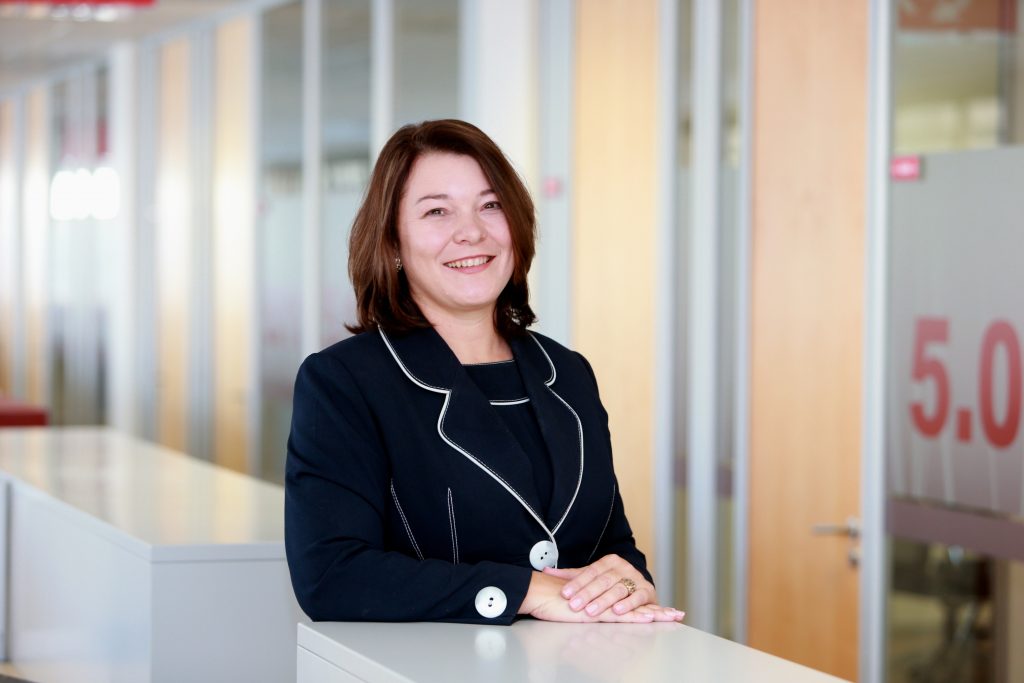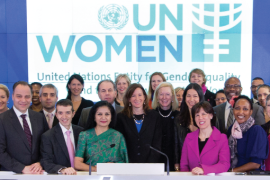Women will be the minority in almost all if a random survey of board rooms is taken, and in statistics where you are in the minority, growing your influence and power takes time. With over two decades in the banking industry, Reinette Van der Merwe earned the title of being the only woman in the boardroom, and she was the only woman most of the time. In this interview with Amazons Watch magazine, she shares her thoughts on this and other issues. Excerpts:
As an impact investor with a longstanding history of value-driven investing, you have been reputed to place corporate social responsibility first. With gender equality a mainstay of the sustainable development goals and fewer women in the corporate circle can CSR contribute much in the area of intellectual and financial empowerment of women and how does CSR being a priority solve this age-long problem?
In many communities around the globe, women are still not on equal footing with men. Through CSR (Citizenship) initiatives, it is possible to reach and assist these women to become entrepreneurs or enter the world of work. Many programmes support women to become financially independent and grow their businesses. The Barclays ‘Ready to Work’ initiative provides the youth with an opportunity to learn about the expectations of the work environment and build skills that will support them in the workplace. Working professionals donate their time and share their experiences. Sometimes all young people need is someone to look up to as a role model and moral support. I have mentored many young women in my career – providing them with guidance and inspiration. Citizenship initiatives are good vehicles to reach women and share advice and knowledge.
One of our many excellent community programmes in Botswana is called Madi Majwana – Stories from your pocket. It is a radio drama that was created through a partnership with Maitisong Theatre. Our main objective with Madi Majwana is to continue to provide Botswana with financial literacy education but to do it in a fun and memorable way. In addition to the radio drama, the cast and crew of Madi Majwana have embarked on an annual tour to an average of 17 villages, to perform for communities and colleagues. The performing arts provided an innovative and exciting platform through which we can continue to talk to Botswana about money skills and encourage them to share their stories – good and bad – on their relationship with money.
Over 500 000 individuals listen to the radio drama annually, over 7 000 have attended the performance, and over 300 youth have had an opportunity to work with Maitisong and develop skills in the performing arts and money management.
Another example is Grass Roots Growing Our Wealth (GROW.) Through this innovative development model, which was developed and implemented by Project Concern International (PCI), Barclays was offered a great opportunity to impact the lives of women by teaching them about financial security and how to become active members of their communities. The GROW model teaches disadvantaged individuals to form self-governing groups that save, lend and conduct business together. During the term of the partnership with PCI, over 300 000 pula was mobilized in savings, and a total of 119 groups were formed.
At Absa, we also recently partnered with the Public Benefit Organisation Lionesses of Africa. Our aim is to give women entrepreneurs a platform to share their knowledge and experience and to enable them to unlock even more business opportunities.
During your tenure, Barclays Bank Botswana met many milestones validating the call for women to be recognized for top management positions. Aside from the economic metrics, what was the level of gender inclusion during your stay and was this a concern before you took over?
Botswana has done better than many other countries in utilizing the skills women bring to the business world. I never really noticed gender inequality during my career until I attended the International Women’s Forum fellowship programme. The programme highlighted that men help each other up the corporate ladder. Women, on the other hand, compete with each other. The programme made me aware of these challenges, and I became more deliberate in my appointment of women and in supporting them to develop their full potential. My successor in Botswana is one such example – I have promoted her from Head of IT to my Chief Operations Officer and supported her appointment to the Chief Executive Officer role.
With over twenty years’ experience in the banking sector, you have risen through the industry’s glaring gender imbalance to become one of the most formidable banking professionals in the South African region. Often referred to as “the only woman in the boardroom”; please share with us some of your experiences in breaking through these diverse barriers and what steps can be taken to tear down gender barriers in the continent.
I have said many times when asked this question that I don’t see gender – I see competence. I never noticed gender in the boardroom until it was pointed out to me. I believe one of the ways to break down the barriers is for women to start by promoting and including women when making appointments. I have found that men at times are uncomfortable having women in the boardroom, but once they realize you are competent, they settle down and become supportive and inclusive. Women should educate themselves, support each other and move into leadership positions with confidence.
Far more than the first-world countries, Botswana is revered globally as one of the standout countries with an impressive gender equality posting, with recorded economic and social growth ascribed to this. What are the lessons to learn from this, and how can other countries adopt this without having to compromise on the quality of their leadership?
Women in Botswana have taken on leadership roles with more confidence than many of their counterparts in other countries. They have had impressive role models such as Linah Mohohlo who was the Governor of the Central Bank for around 17 years. Strong women lead many of the financial services organizations. Botswana has embraced and supported their female leaders. Some of the lessons learned are that women should take these roles on with confidence and should be supported to be successful just like their male counterparts.
The 2019 edition of the Amazons Watch Magazine and Centre for Economic and Leadership Development’s SAMEAWS is themed Developing Female Transformational Leaders: A New Paradigm for Growing Emerging Economies. We’d crave your indulgence for a preamble. We are looking at the Business Case for Gender Lens Investing, as one of the key sessions of the summit. As a panellist in this session, and one who has had the apex-level experience in the investment world, what are those sentiments that derail the efforts of women in the investment circle?
Transformational leadership means leaders need to encourage, inspire and motivate employees to be innovative. Leaders create change that will help grow and shape the future success of the company. Women should educate themselves and ensure that they are part of the conversation as equals to men. Women are their own worst enemies, taking a back seat at times. They don’t believe in themselves, and their counterparts do not support them the same way men will support each other. Some women also try to be like men, which then also create disparity. Women should be proud to be women and be authentic in their leadership approach.
The CELD’s Global Impact Leadership Award recognizes women who have led a sector with remarkable achievements that have improved the lives of women in that sector. Quite particularly your initiative the “Ready to Work” has had testimonials to its effectiveness. We believe that this initiative was designed to close a gap. We’d like to know areas of improvement on its already existing structure and the efforts to achieve this.
‘Ready to Work’ is an excellent example of a Barclays initiative that hits the mark. Our ‘Ready to Work ‘ initiative was launched in 2016 with the main objective of providing digital and face-to-face training curricula for young people to ease their transition from school to the world of work, whether it’s entrepreneurship or employment. ‘Ready to Work’ has four modules, including work, people, money and entrepreneurial skills. Through our partnerships in Botswana with Project Concern International and Stepping Stones International, we have trained approximately
Nine thousand young people across Botswana and placed 213 into employment or internship opportunities. Our training programme will continue this year, and I am confident that we would have reached over 10 000 by the end of the year. In addition to developing skills in the four areas mentioned, Ready to Work has also given young people who have dropped out of school the confidence to return to school and complete their studies.
I think more financial investment and partnering with more community partners can improve the programme. We have already made training programmes available on our website where people can download the material free of charge. More funding can also open the door for paid tutors to support learners on their journey. Currently, all training and tutoring are done voluntarily or via our community partners.
What is the best way for readers of Amazons Watch Magazine to connect with you?
Readers can connect with me on LinkedIn.





Comments are closed.